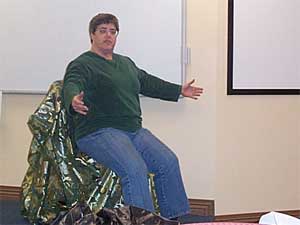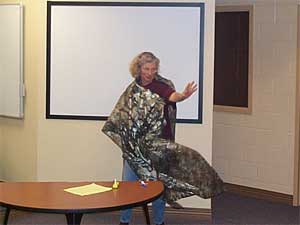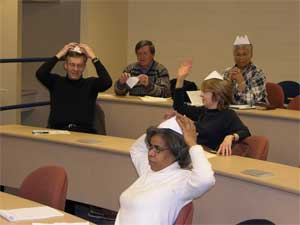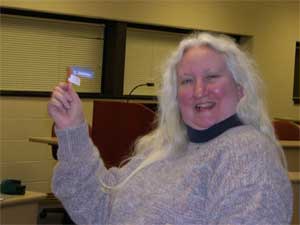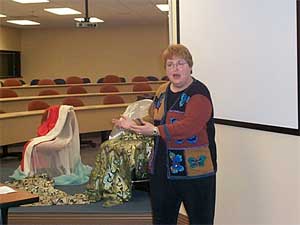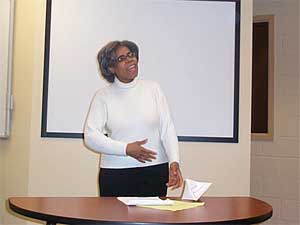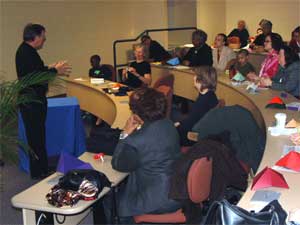Presented March 15, 2007 at United Theological Seminary
Also videotaped in May, 2007 and presented in abbreviated form at the 2007 Hoosier Storytelling Festival in Indianapolis
Stories:
Queen Vashti
A search for a new queen
Haman’s plot
Mordecai gets Esther’s help
Esther’s first banquet
Mordecai is honored
Haman’s downfall
Esther’s solution
The attack
The holiday of Purim
A photographic remembrance, with photos courtesy of John Loomis, Joyce Orr, and Amelia Boomershine.

One week later: As a prelude to the epic telling, Hebrew Bible scholar, Lisa Wolfe, introduced the story of Esther. She discussed its historical setting, the characters, and questions it raises.
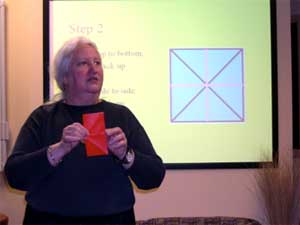
The audience made Haman’s hats to be properly attired for the telling. Joyce Orr was a good teacher.
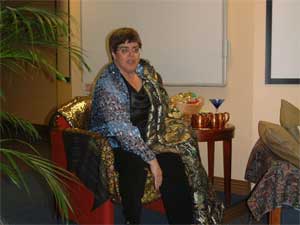
“In those days when King Ahasuerus sat on his royal throne in the citadel of Susa, in the third year of his reign, he gave a banquet for all his officials and ministers.” (Esther 1:2; Janet Steele told chapter one)
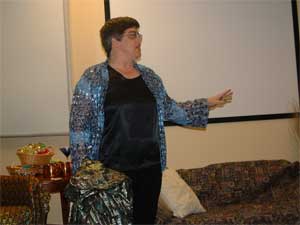
“If it pleases the king, let a royal order go out from him, and let it be written among the laws of the Persians and the Medes so that it may not be altered, that Vashti is never again to come before King Ahasuerus; and let the king give her royal position to another who is better than she.” (Esther 1:19)
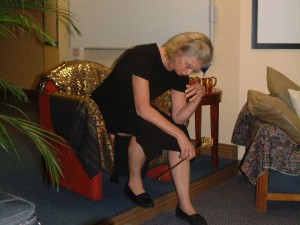
“After these things, when the anger of King Ahasuerus had abated, he remembered Vashti and what she had done and what had been decreed against her.” (Esther 2:1; Amelia Boomershine told chapter two)
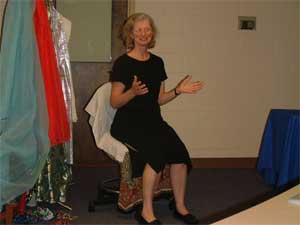
“Mordecai had brought up Hadassah, that is Esther, his cousin, for she had neither father nor mother; the girl was fair and beautiful, and when her father and her mother died, Mordecai adopted her as his own daughter.” (Esther 2:7)

“Haman plotted to destroy all the Jews, the people of Mordecai, throughout the whole kingdom of Ahasuerus.” (Esther 3:6; Gye Miller read chapter three, creatively standing in for a no-show teller)

“Who knows? Perhaps you have come to royal dignity for just such a time as this.” (Esther 4:14; Kathy O’Donnell told chapter four)
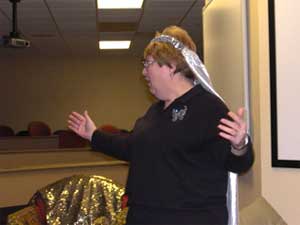
“Go, gather all the Jews to be found in Susa, and hold a fast on my behalf, and neither eat nor drink for three days, night or day. I and my maids will also fast as you do. After that I will go tto the king, though it is against the law; and if I perish, I perish.” (Esther 4:16)

“On the third day Esther put on her royal robes and stood in the inner court of the king’s palace, opposite the king’s hall.” (Esther 5:1; Jan Loomis told chapter five)

“What is it, Queen Esther? What is your request? It shall be given you, even to the half of my kingdom.” (Esther 5:3)

“Let a gallows fifty cubits high be made, and in the morning tell the king to have Mordecai hanged on it; then go with the king to the banquet in good spirits.” (Esther 5:14)

“It was found written how Mordecai had told about Bigthana and Teresh, two of the king’s eunuchs, who guarded the threshold, and who had conspired to assassinate King Ahasuerus.” (Esther 6:2; Dennis Williams told chapter six)

“So Haman took the robes and the horse and robed Mordecai and led him riding through the open square of the city, proclaiming, “Thus shall it be done for the man whom the king wishes to honor.” (Esther 6:11)
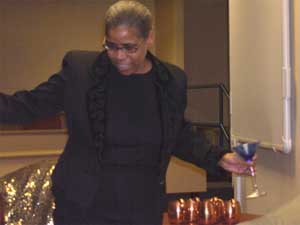
“On the second day, as they were drinking wine, the king again said to Esther, “What is your petition, Queen Esther? It shall be granted you.” (Esther 7:2; Gye Miller told Esther seven)
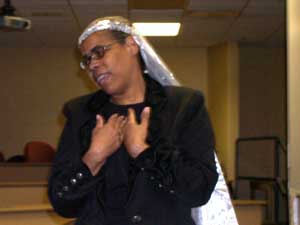
“If I have won your favor, O king, and if it pleases the king, let my life be given me…For we have been sold, I and my people, to be destroyed, to be killed, and to be annihilated.” (Esther 7:3-4)
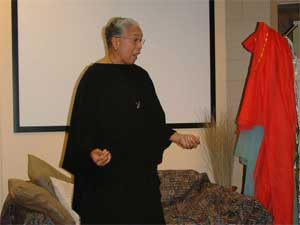
“Then Esther spoke again to the king; she fell at his feet, weeping and pleading with him to avert the evil design of Haman the Agagite and the plot that he had devised aginst the Jews.” (Esther 8:3; Mary Kercheval-Short tells chapter eight)
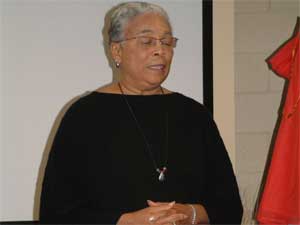
“You may write as you please with regard to the Jews, in the name of the king, and seal it with the king’s ring; for an edict written in the name of the king and sealed wiht the king’s ring cannot be revoked.” (Esther 8:8)
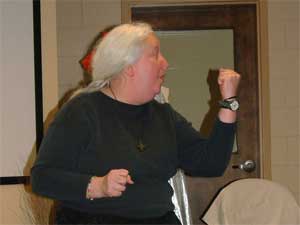
“…on the very day when the enemies of the Jews hoped to gain power over them, but which had been changed to a day when the Jews would gain power over their foes, the Jews gathered in their cities throughout all the provinces of King Ahasuerus to lay hands on those who had sought their ruin…” (Esther 9:1-2; Joyce Orr told chapter nine, part one)
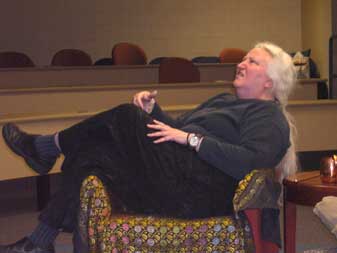
“That very day the number of those killed in the citadel of Susa was reported to the king.” (Esther 9:11)

“This was on the thirteenth day of the month of Adar, and on the fourteenth day they rested and made that a day of feasting and gladness.” (Esther 9:17)

“Mordecai recorded these things, and sent letters to all the Jews who were in all the provinces of King Ahasuerus, both near and far, enjoining them that they should keep the fourteenth day of the month Adar and also the fifteenth day of the same month, year by year…” (Esther 9:20-21; Tom Boomershine told chapter nine, part two and chapter ten)

“…as the days on which the Jews gained relief from their enemies, and as the month that had been turned for them from sorrow into gladness and from mourning into a holiday; that they should make them days of feasting and gladness, days for sending gifts of food to one another and presents to the poor.” (Esther 9:22)

